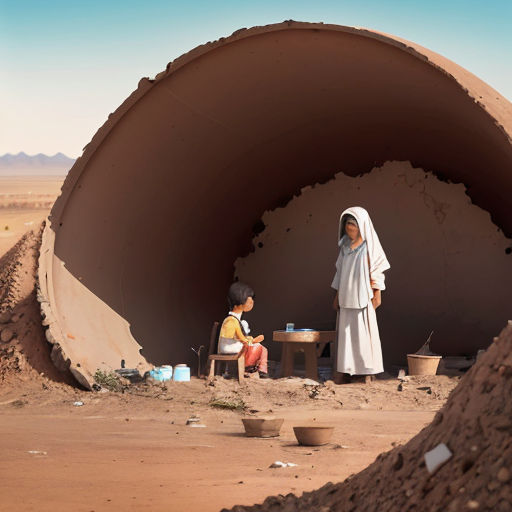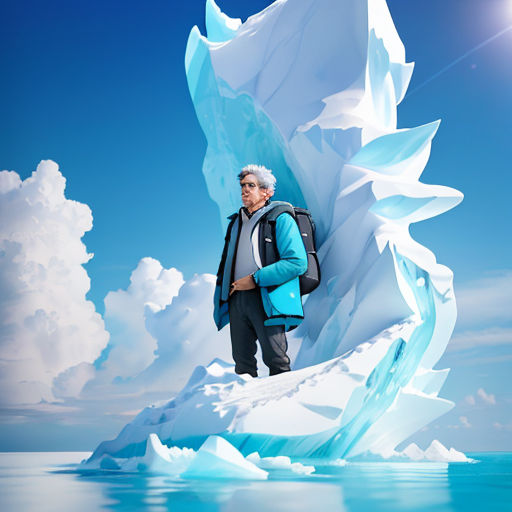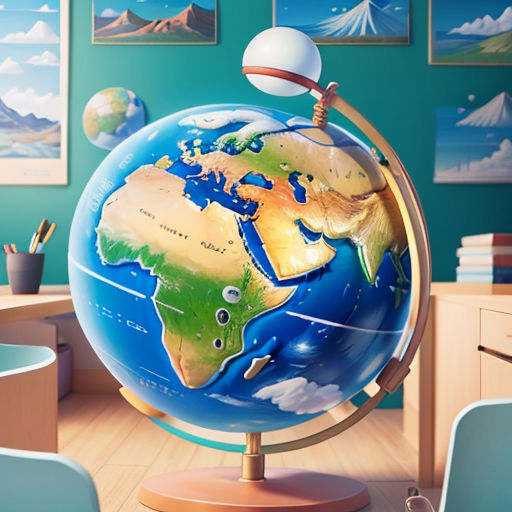
Mapping the World: A Geographer's Journey
By 小冰

02 Jul, 2023

Once there was a notable geographer, Charlie. For years, Charlie had dedicated his time and efforts towards understanding the planet and its complex systems. With globalization rapidly creating an interconnected world, Charlie believed that the study of geography had never been more crucial.

His passion for geography was not just about knowing the world's cities and their locations. For Charlie, geography was an in-depth study of the Earth’s landscapes, inhabitants, and the dynamic relationships amongst them.

Charlie saw geography as a way of comprehending the world and its future. With increasing environmental issues, rapid urbanization, and resource exploitation on the rise, he thought it was time that we direly needed a geographical perspective.

He embarked on a global journey, intent on uncovering the interconnected challenges faced by our world and proposing potential solutions through the lens of geography. His first stop was a bustling metropolis known for its rapid urbanization - Shanghai.

Navigating through the city's towering skyscrapers, Charlie observed the impact of hasty urbanization. He saw rural migrants struggling to adapt to the city, escalating housing prices, and an increasing gap between the rich and poor.

He documented the urban sprawl and the loss of green spaces, which consequently led to an increase in pollution. Charlie realized that a balance between urban development and environmental conservation was desperately needed.

Next, Charlie found himself traveling to the oil-rich sands of Saudi Arabia. Witnessing the abundant extraction of oil, he couldn't help but contemplate resource utilization and its repercussions.

Despite the wealth it brought, continued dependence on oil led to environmental degradation and overconsumption resulting in dwindling reserves. Interviewing local communities, he understood how their lives had been altered by such extensive resource exploitation.

The severity of the situation led Charlie to believe that it was crucial to promote sustainable energy alternatives. He considered geographical studies as a vital tool in identifying locations suitable for renewable energy sources.

Charlie's journey then took him to the Amazon Rainforest, where he witnessed alarming deforestation. Here, he saw a conflict between the demand for agricultural land, the need for economic growth, and the imperative of preserving biodiversity.

He envisioned an approach intertwining geographical knowledge and sustainable development. By understanding the geographical landscape, we could identify areas suitable for agriculture and those needing conservation.

His journey led him to regions facing the brunt of climate change. Confronting melting glaciers in the Arctic and rising sea levels in the Maldives, he stood witness to the harsh reality of a warming planet.

Charlie comprehended the urgent need for global collaboration to combat climate change. To him, geographical studies could effectively illustrate the global distribution of climate change impacts, facilitating a concerted global response.

Charlie's journey concluded in his homeland, where he pondered over his findings. He realized that geography does not only help us understand our world but also the pressing issues of our time.

He embarked on a mission to communicate the relevance of geography in contemporary times. Delivering lectures in schools, writing articles, making documentaries, he worked tirelessly to emphasize the significance of geographical studies.

Charlie emphasized that a geographical perspective was essential to anticipate future challenges and plan accordingly. He encouraged the younger generation to delve deep into geography, understanding it as a tool for planning our sustainable future.

He hoped that through his efforts, more people would realize how geography could aid in addressing urbanization problems, managing resource utilization, and mitigating environmental issues.

Charlie's story is a reminder of the importance of geography in understanding our planet, especially in the era of globalization. It represents the need for an integrated approach, combining knowledge from various fields to tackle the challenges of the future.

To understand the world we live in and the transformations it is undergoing, we must understand geography. It is not merely about the earth's topography but essentially about the complex interactions between people and their environment.

Geography deals with the sustainability of our future. It serves as a roadmap, guiding us on how to live harmoniously with our natural surroundings. Charlie's journey underscored the importance of geography as a vehicle for understanding and navigating the challenges ahead.

Charlie's story is a call to action. It highlights the importance of geography in our daily lives and its potential to solve the pressing issues of our time. His journey offers valuable lessons on how geography can be leveraged to build a sustainable and inclusive future.

By understanding the interconnectedness of our world through the lens of geography, we become better equipped to navigate the complexities of globalization. Charlie's story inspires us to employ geographical knowledge to shape a better and sustainable future.

Charlie's adventures and insights had a profound impact on people worldwide. His work served as a reminder of the pressing need for geography's meaningful inclusion in our decision-making processes and development agendas.

His story rekindled interest in geography and inspired a new generation of geographers. They would carry the torch lit by Charlie, using geographical knowledge to build a bridge towards a sustainable future.

Charlie's journey reflects the power and importance of geography. Through his eyes, we understood that geography not only describes the world we live in but also provides the tools to shape its future. His life's work continues to inspire many, emphasizing the enduring relevance of geography in an interconnected world.